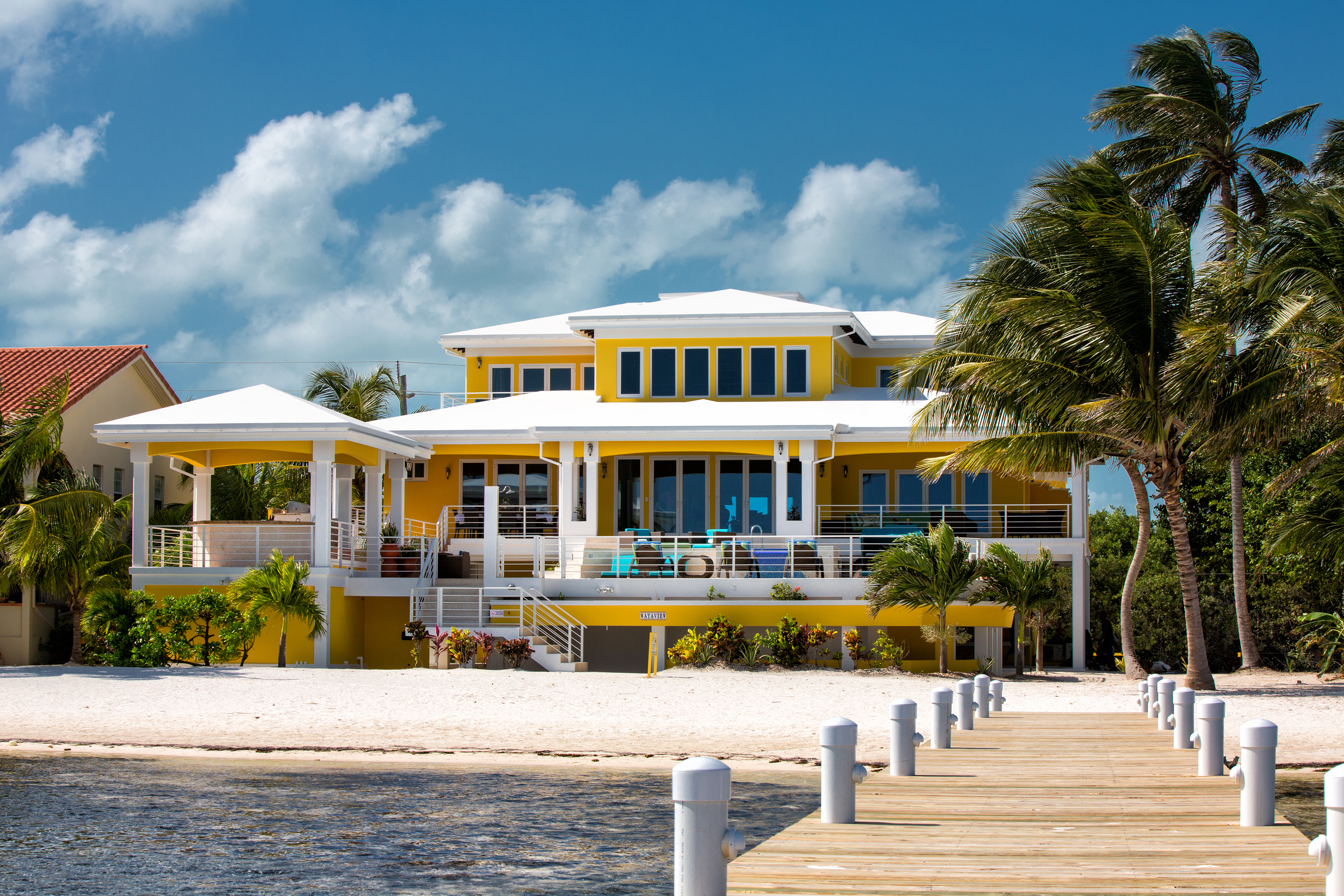10 Island Real Estate Tips For Moving To An Island
What You Need to Know Before Moving to an Island
Moving to an island isn't as simple as you may hope, but it needn't be overly complicated either. Learn the secrets from on-island real estate agents about what to expect in your dream destination, be it Belize or Hawaii or Hong Kong, so you can start your property-buying search with eyes wide open.
1. Don't buy too quickly. "I know this sounds strange coming from a real estate agent. Instead, rent for six months or so. Island living isn't for everyone. People move to an island expecting to fall in love, but really, it's fifty-fifty. The dream includes a hammock, piña colada and Jimmy Buffett. You may get a few days of that — then you probably need to get a job." — J.B. Seligman, owner of Buena Vista Realty in Bocas del Toro, Panama
2. Get pre-qualified for a loan so you know how much you can spend. "Everyone wants an ocean view, but you might be broken-hearted if it's not within your budget. Also, decide what's important to you. In the Florida Keys, there's one road, which means you could live 1 mile or 20 from the grocery store. Which matters more: convenience or privacy?" — Mark Mills, realtor with American Caribbean Real Estate in Key Largo, Florida
3. Manage your expectations. "Life in Hong Kong will always be a compromise for any expat because the accommodations are so much smaller. Often the answer for American expats is to buy in a new building, but you can forget about fitting a king-size bed. Also, what are considered basics in the U.S. may be non-standard here. A decent kitchen with a clean refrigerator, convection oven and work surfaces at a comfortable height tend to be Western luxuries that come at premium prices." — Barbara Sturdy, agent with Sotheby's International Real Estate in Hong Kong
4. Learn the local real estate terms. "Get educated, especially with Hawaii lingo, which can be confusing. An ohana is a separate, detached living structure, similar to a mother-in-law apartment. In Maui, condo-tels are common, which are condos with some hotel amenities, and vary by property." — Clint Hansen of The Hansen Ohana Real Estate Group on Maui
5. Choose a real estate agent that is based on the island where you want to purchase. "Hawaii's classifications and zoning restrictions are tricky — Maui especially has some of the most complicated zoning ordinances compared to other islands. Because of this, even though I have been to Lanai dozens of times, I will always refer a client to an agent who specializes buying on Lanai." — Hansen
6. Open a local bank account. "Most likely, you need a local bank account before you can make a big purchase. In Sicily, you need one here before you can move any money from the U.S. Plus, you have to be outside of The States to make the transfer. When moving money, you have to be very organized." — Ramsay Guilderdale, owner of Modicasa, an English real estate agency in Sicily
7. Research the local laws. "Italy has other surprising laws. You cannot buy a car unless you are a tax resident. You can only rent unless you've live here more than 183 days per year, and pay taxes as well." — Guilderdale
8. Know the import tax in regard to your possessions. "In Belize, you have to pay taxes and duty on belongings you bring down. The minimum fee is 15% and the maximum is 75%. So consider the value of your current possessions. Are they worth bringing? Keep in mind that Belize doesn't have the selection of products in the U.S. (TVs, juicers, bicycles, etc.). One way around this is through the qualified retirement person programs, or QRPs. These allow you to fill and bring one shipping container, tax and duty free." — Josh Buettner, agent with Ambergris Seaside Real Estate
9. Consider the locale's political stability. "Buy a home in the U.S. Virgin Islands, and, because it's a U.S. territory, it's a safer investment than buying in a country where the government could take your property. A bonus here is that the property taxes are much lower in comparison to the mainland. The flip side is that catastrophic insurance is high because of hurricanes, and you need catastrophic insurance when getting a mortgage." — Diana Robinson, broker owner Paradise Properties on St. Croix
10. Be prepared with cash to buy. "In Mexico, there is no financing. You have to have the money to buy outright, or find something owner-financed (and you won't find a condo on the ocean that is owner-financed). So, you need to have closed on your sale in the States and be ready with cash to make an offer." — Nancy Edwards, owner of Cozumel Living
